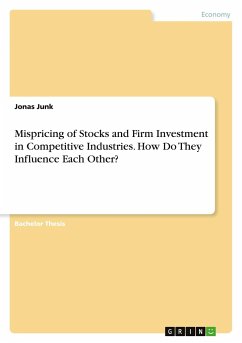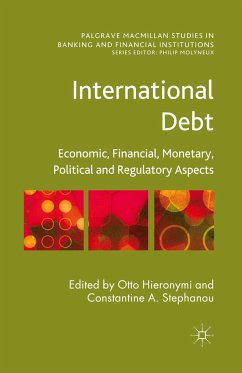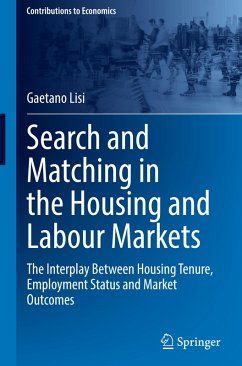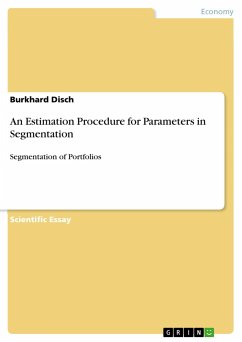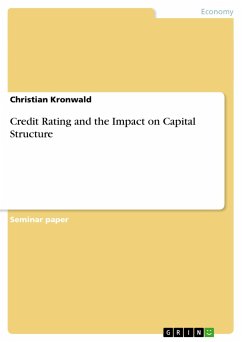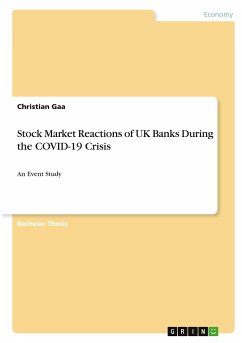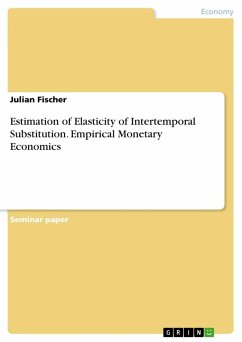
Estimation of Elasticity of Intertemporal Substitution. Empirical Monetary Economics

PAYBACK Punkte
0 °P sammeln!
Seminar paper from the year 2020 in the subject Business economics - Banking, Stock Exchanges, Insurance, Accounting, grade: 1,0, University of Hannover (Institut für Geld und Internationale Finanzwirtschaft), course: Empirical Monetary Economics Using Microdata, language: English, abstract: In this thesis the predictive power of individual survey participants on expected macroeconomic values is analysed. The research results of Crump (2015) are investigated and the elasticity of intertemporal substitution (EIS) is estimated according to their model. The core estimate results in an EIS coeffi...
Seminar paper from the year 2020 in the subject Business economics - Banking, Stock Exchanges, Insurance, Accounting, grade: 1,0, University of Hannover (Institut für Geld und Internationale Finanzwirtschaft), course: Empirical Monetary Economics Using Microdata, language: English, abstract: In this thesis the predictive power of individual survey participants on expected macroeconomic values is analysed. The research results of Crump (2015) are investigated and the elasticity of intertemporal substitution (EIS) is estimated according to their model. The core estimate results in an EIS coefficient of 0.839, which is marginally higher than previous results in literature. Considering the predictive power, demographic variables, sensitivity components, and time dependent fixed effects, the range is approximately 0.6 to 0.9, depending on the specification, where the estimated EIS values range. In particular the subdivision in different levels of education allows interesting and validated implications. The interpretation of the EIS offers a helpful contribution for many market actors and especially economic policymakers. For example, the effectiveness and targeting accuracy of an economic stimulus plan in the current corona crisis could be increased with the help of the empirical findings of the EIS.Especially in times of crisis, such as the current corona pandemic, we are repeatedly reminded that in our economic world all market participants and institutions are deeply interconnected due to dependencies and expectations. Not only central banks, which in recent years have been accused of having a reduced capacity to act as a result of low interest rate policies, but also investors, entrepreneurs and governments are interested in gaining a deeper understanding of the impact of expectations on real value development.




